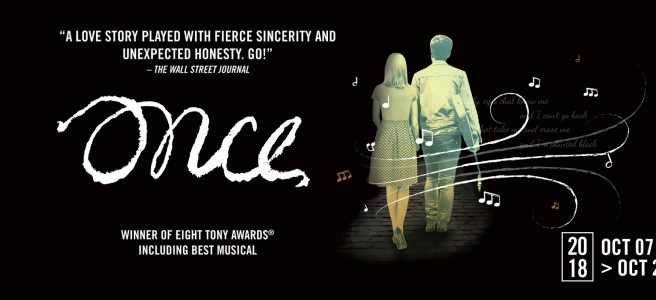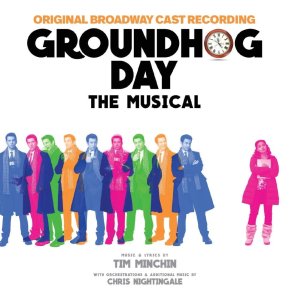In which I perhaps delve a bit too deeply into the politics of this vibrant, grin-inducing, family-friendly musical brought to you by Dora Wasserman Yiddish Theatre.
The small, peaceful village of Chelm is disrupted when flute-playing wanderer Menakhem happens upon it and makes it his mission to stay. Our eventual romantic lead, played and sung effortlessly by Jake Cohen, is immediately jarring in the midst of the traditional Chelm. He wears denim, plaid, and a beanie, modern clothing that clashes with the garb worn by the villagers – the type of costume design one would expect when watching a musical based on Yiddish folktales. It is clear that Menakhem arrives as a symbol of progress, a voice of reason in the midst of the “foolish souls” – but the conclusion of the show is not a lesson about the inevitability of progress that I came to expect.
The plot is centred around Menakhem and Shoshane (Jeanne Motulsky), the most beautiful woman in the village with whom Menakhem suddenly, magically, falls in love. The two leads have a playful, childlike chemistry, and you can’t help but root for them. Their major obstacles are Shoshane’s current engagement to another man, as well as her family’s (and the general villagers’) distrust of her beloved.

It is always very clear to the audience when a cast is genuinely enjoying every moment onstage, and this cast has the endless energy of a fireworks display and a set just as colourful. The show, entirely in Yiddish, includes both English and French supertitles – but I found that, even when my eyes strayed from the text, meaning was conveyed clearly through the actors’ complete devotion to their characters and this story. Besides Cohen and Motulsky, other standouts include Stan Unger as the Rabbi, whose performance felt the most grounded of the cast without losing any vitality (I’m assuming he is the cast member most fluent in the Yiddish language), and Jodi Lackman playing Yente Peshe with an electric, occasionally frantic energy and an obvious utter joy of performing. Special shout-outs to the band, who with only four musicians managed to completely fill the theatre without any sparsity in sound, as well as the person running the supertitles – I can’t imagine the challenge of syncing up the English and French written lines with the spoken lines in an unfamiliar language, and they did a commendable job.

Now, for the political analysis that may be far-reaching and that nobody asked for (SPOILERS AHEAD). What I find particularly interesting about this production is that it neither entirely embraces nor rejects progress, which is arguably the underlying theme of the show. Menakhem arrives as a positive symbol of progress to introduce new ideas and a brighter, more accepting future to the Chelm villagers. Specifically, he is the reason Shoshane is granted agency in who she wants to marry, and at the very end of the show, he champions a gay wedding (although there is no trace of preexisting homophobia in the village, so this may insinuate a rather callous assumption about the inhabitants of Chelm). However, this is not a story about small-town people who discover and embrace the glory of modern times. Twice throughout the show, the Litvak appears, sent to bring a steam locomotive to the village. Both times, he is forcefully rejected by the characters. He exists as somewhat of a capitalistic symbol, representing an unwanted future – one in which everyone rushes from one place to the next; in which corporations threaten their employees with the claim that machines will make them obsolete (the villagers claim that, with the presence of the train, their wagon will no longer be needed, endangering their livelihood). This is a future of consumption and planned obsolescence, illustrated by the iPad carried by the Litvak. It’s a future that would ruin the village and its inhabitants, both psychologically and economically, and it’s a future that seems eerily like our present. It’s a nuanced take on the topic of progress, and it seems to me that the conclusion is that progress is a good thing, but not to the detriment of people’s well-being. Then again, I might be reading into it a bit too much.
The Sages of Chelm has six more performances at the Segal Centre, and if you have a craving for two hours of laughter, love, and music, I cannot recommend it enough. Congrats to the cast and crew!






